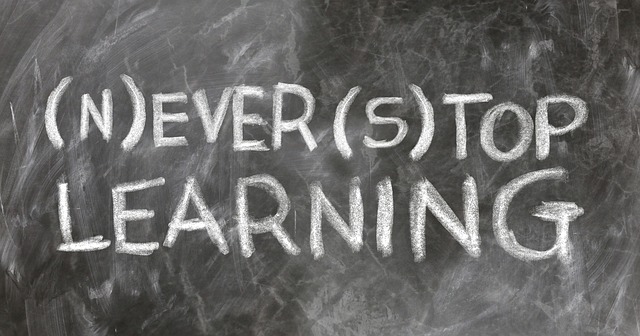The Importance of Personal Reflection in Self-Improvement
Personal reflection serves as a cornerstone for self-improvement and personal development. It creates space for individuals to analyze their thoughts, feelings, and actions. This process does not just involve looking back on past experiences; it also requires an honest examination of what those experiences mean and how they shape our futures. Engaging in personal reflection allows you to scrutinize your motivations and recognize the patterns that influence your behavior. In essence, self-reflection transforms experiences into valuable lessons that pave the way for growth.
Moreover, by regularly reflecting on our personal experiences, we can identify areas in our lives that require change. For instance, let’s say you recently faced a challenging situation at work. Instead of brushing it aside, take the time to reflect on what happened. What went well? What didn’t? Did you handle the situation the way you anticipated? This analysis can offer critical insights that help you approach similar situations in the future with greater poise and confidence. Therefore, personal reflection becomes a powerful tool that empowers you to take charge of your self-improvement journey.
Engaging in personal reflection can be as simple as setting aside time each week to journal about your experiences. Some people prefer to meditate or engage in deep thinking while walking. Regardless of the method you choose, the key is consistency. Over time, this practice will deepen your understanding of yourself. Ultimately, it encourages a mindset of continuous learning, essential for personal development. You might find yourself recognizing strengths you didn’t acknowledge before. Perhaps you’ve shown resilience in difficult circumstances, or you’ve cultivated strong relationships with those around you. All of this feedback translates into actionable steps towards self-improvement.
How Personal Reflection Fuels Self-Discovery
Personal reflection is synonymous with self-discovery. When you commit to reflecting on your life, you embark on a journey to understand who you truly are. This journey propels you to question your beliefs, values, and even dreams. Have you ever found yourself stuck on a path that doesn’t truly resonate with you? Engaging in thoughtful reflection allows you to peel back the layers of societal expectations and to confront your ambitions. You may realize that your career choice stems from external pressures rather than authentic desire.
Through this lens, personal reflection cultivates authenticity. More importantly, it aligns your actions with your genuine self. When you understand and accept your true self, you can pursue goals that genuinely excite you, leading to profound personal development. Picture this: someone who has always aimed for a high-paying corporate job, only to discover a passion for teaching or artistry during their reflective practice. This realization opens doors to a career that aligns more with their true self, enhancing both job satisfaction and personal happiness.
Furthermore, you often find yourself brainstorming new possibilities and ideas. Self-reflection fuels creativity, especially when you explore past experiences and their lessons. Imagine you keep a journal where, in the aftermath of a failed project, you analyze what went wrong. Instead of viewing this incident as a setback, you consider it an opportunity for growth. You begin jotting down innovative strategies and approaches that could lead to success in your next endeavor. This shift in perspective transforms mistakes into stepping stones, which is crucial for both self-improvement and personal development.
Identifying and Overcoming Limiting Beliefs Through Reflection
One remarkable aspect of personal reflection is its ability to unveil limiting beliefs. Limiting beliefs are those inner thoughts that undermine your self-worth and potential. They often stem from past experiences, societal conditioning, or negative influences. Many people go through life unaware that these ingrained beliefs hold them back from achieving self-improvement. By immersing yourself in reflection, you unveil these hidden shackles and can actively work to dismantle them.
For example, you might recognize through reflection that you often tell yourself, “I’m not good enough.” This realization can be both alarming and empowering. Upon identifying this belief, you can challenge its validity. Ask yourself: Is there evidence for this belief? What experiences contradict it? Did you recently receive a compliment or achieve something noteworthy? This reassessment empowers you to replace limiting beliefs with affirmations that promote self-growth.
Additionally, addressing limiting beliefs allows you to foster a positive mindset. With every reflection session, you reinforce the idea that you can change how you interact with the world. As a result, you learn to embrace challenges rather than shy away from them. Each step outside your comfort zone strengthens your resilience. This burgeoning confidence leads you to explore new paths and seek achievements that align with your ideal self-image. Thus, reflection acts as both a mirror and a catalyst for self-improvement.
Personal Reflection as a Tool for Goal Setting
Effective goal setting emerges naturally from personal reflection. When you take a step back to reflect on your life, you begin to visualize where you want to go, both personally and professionally. Rather than simply dreaming of future achievements, you can create concrete plans structured around your newfound insights. The process of reflection helps clarify your values and priorities, making it easier to identify which goals are most important to you.
Imagine you’ve spent a week reflecting on your physical health. You recognize that you have been neglecting your well-being, and this realization inspires you to set specific health goals. Perhaps you decide you want to run a 5K or improve your daily nutrition. By setting these goals, you move from mere acknowledgment to actionable steps. With every reflection session, tracking your progress becomes easier, as you consistently align your actions with your ultimate objectives. This alignment bolsters motivation and encourages you to stay committed to self-improvement.
Additionally, when you articulate your goals, it encourages accountability. Consider sharing your aspirations with friends or family. This transparency invites support and structures a social network that holds you accountable. When the going gets tough, having someone to share your challenges with encourages resilience. This aspect of personal reflection and goal setting creates a cycle where progress feeds back into your motivation, further facilitating the pursuit of self-improvement.
Refining Emotional Intelligence Through Reflection
Emotional intelligence (EI) plays a pivotal role in self-improvement. This capacity to recognize, understand, and manage your emotions—and the emotions of others—can significantly enhance your personal and professional life. Personal reflection deepens your emotional intelligence by encouraging you to explore your emotional responses to different situations. For instance, after a heated conversation with a colleague, taking time to reflect on your feelings and reactions can reveal insights into your emotional triggers. Did you feel hurt, defensive, or misunderstood? Recognizing these emotional responses allows you to understand the root causes behind them.
Understanding your emotional landscape builds greater empathy toward others. When you examine your feelings, you may begin to appreciate that others have their emotional struggles. This newfound empathy fosters stronger connections, which enhances communication skills and social interactions. When you approach conversations with a genuine understanding of emotions—both yours and theirs—you create a supportive environment conducive to resolving conflicts and building relationships.
Moreover, refining emotional intelligence through reflection promotes conflict resolution. When you find yourself in tense situations, you can step back, analyze your emotional responses, and ultimately choose a more constructive approach. You can ask yourself: How can I communicate my feelings more effectively? Reflecting on different approaches enables you to navigate emotionally charged situations with grace. As a result, your ability to handle conflict improves, leading to further personal growth and self-improvement.
Practical Steps to Cultivate Personal Reflection
Now that we understand the significant impact of personal reflection on self-improvement, let’s explore practical steps to cultivate this essential practice. First off, designate a specific time for reflection. People often find morning or evening quiet times effective for setting aside reflection time. This commitment transforms reflection from a sporadic event into a regular practice, allowing for deep introspection.
Next, you might consider journaling as a powerful method for engaging in personal reflection. Writing about your thoughts and feelings helps articulate your experiences. It creates a tangible record that you can review later, enabling you to observe growth over time. Try to explore not only your successes but also your challenges. Often, real growth emerges from overcoming adversity.
Don’t overlook the power of mindfulness and meditation, either. By focusing on the present moment, you clear away distractions and open your mind to deeper self-exploration. Mindfulness helps cultivate an awareness of your emotional state, allowing you to recognize patterns in your thinking. These practices amplify your self-reflection sessions and sharpen your insights into your behaviors and motivations.
Building a Community of Reflective Practice
Finally, consider the value of a supportive community in your journey of personal reflection. Create or join a group focused on self-improvement. Engaging with others who prioritize reflection can enhance your own practice. Sharing insights, struggles, and triumphs creates an environment where everyone feels encouraged to grow. This collective journey further emphasizes the importance of personal reflection in achieving individual goals.
Frequently Asked Questions
1. How often should I engage in personal reflection?
It varies from person to person, but aiming for at least once a week can create habit. Consistency is critical, whether it’s through journaling, meditation, or casual contemplation.
2. What methods can I use for personal reflection?
You can utilize journaling, meditation, deep thinking walks, or structured reflection questions. Choose methods that resonate with you for meaningful insights.
3. Can personal reflection really lead to significant self-improvement?
Absolutely! Personal reflection deepens self-awareness, uncovers limiting beliefs, and enables better decision-making, all of which are essential for self-improvement.
4. What if I struggle with negative thoughts during reflection?
It’s normal to encounter negative thoughts. Practice self-compassion and focus on what you can learn from these thoughts rather than judging yourself harshly.
5. How can I hold myself accountable for my self-improvement goals?
Share your goals with trusted friends or family and seek their support. Regularly review your progress and celebrate small wins to stay motivated and accountable.



